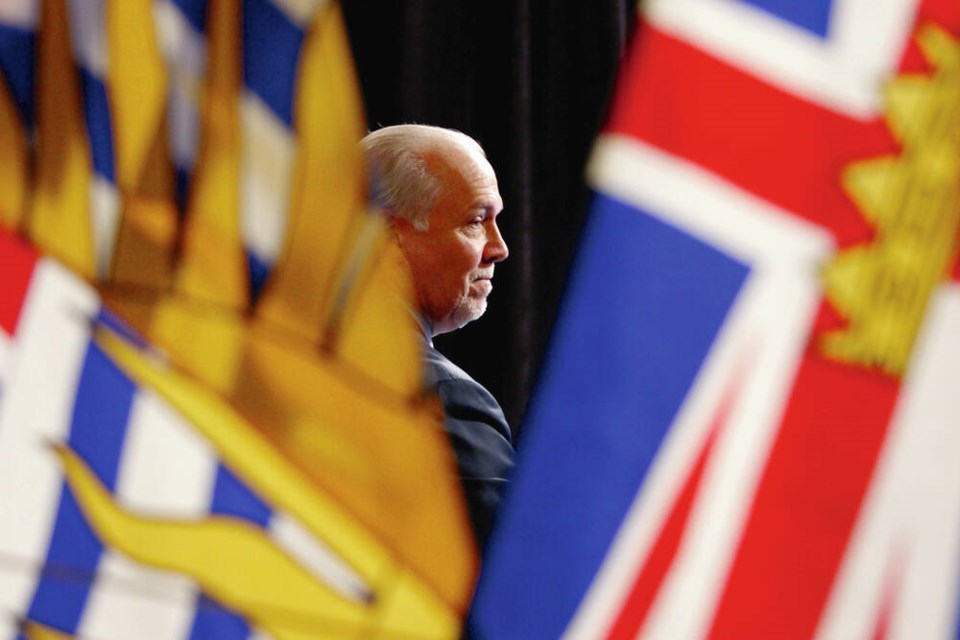The Ministry of Children and Family Development’s plan to claw back individual funding for children with autism and build “hubs” across British Columbia has been almost universally panned by families, Indigenous leaders, opposition parties, disability groups and the media.
Parents in Ontario, where a “hub” system was instituted in recent years, have written articles begging the Horgan government not to follow in the footsteps of the Ford government.
MCFD’s recent information sessions about their plan have been described by those few who were able to register as “scripted,” “patronizing,” “traumatic,” “repetitive,” “detached,” “frustrating” and “disheartening.”
Which all raises the question: why is B.C. making such poor political and policy choices?
I have a theory.
MCFD is in an existential fight for its own survival, and their response is to firm up control and jobs. Faced with a loss of power in coming years, they want to centralize all services for children with special needs in their own buildings with greater roles for their own staff.
What is this existential crisis? It is indisputable that MCFD has been in crisis for years. The Office of the Representative for Children and Youth was created because the public lost trust in MCFD to investigate what really happens when children in their care are injured or die.
But the real crisis for MCFD is the recognition — finally — that Indigenous Peoples will be reclaiming the role of protecting and caring for Indigenous children, who currently make up more than 60 per cent of MCFD’s “clientele.”
The federal government has passed a law supporting the jurisdiction of Indigenous governments over their children, and First Nations across B.C. are working to implement this jurisdiction. MCFD’s reasons to exist are shrinking.
MCFD wants more real estate and more “clients” because it needs to find ways to remain relevant. Part of that future might be found in services for children and youth with special needs. But those pesky families that receive funding are standing in their way.
Families with children who get individual funding have the option to be autonomous, to choose people they trust to work with their child, and to decide how and where those services happen. They build relationships and a community around their child — a community that loves their unique child. Those families are MCFD’s roadblock to maintaining relevance.
And faced with opposition to their plan, MCFD has decided to blame the bad moms who stand in the way of progress. That’s right: Moms of children with autism are being painted by MCFD as mean moms because they have … chosen how to use funds to pay for their children’s therapies.
Minister Mitzi Dean seems to have her eyes wide open that she is trying to divide parents into different groups and pit them against each other.
In her worldview, if one child gets funding and another doesn’t, the only answer is to take funding away from the child who gets it.
This is why MCFD does not call attention to the fact that they are also clawing back all funding for kids who are part of the At Home program. Those kids have vastly more diverse complex needs and are spread out over the entire province, which interferes with MCFD’s talking point that only the privileged parents of kids with autism are taking all the money.
I hope the minister was misquoted when talking about the lack of accountability of parents who receive individual funding. She must know there’s an office dedicated to poring over the detailed invoices that parents (and their service providers) have to sign and file with MCFD.
What should B.C. be doing?
Instead of more buildings and waitlists, and more policies about how to manage waitlists, MCFD could increase the reach of individual funding for more children. Instead of trying to tear down some families, they could build up more families.
It’s obvious the “hubs” require a bigger budget than is currently spent, in which case more direct funding of children with a wide range of special needs is an option that can be considered.
If MCFD really wants to help children with FASD and Down syndrome (and PDDNOS and ADHD and other disabilities), then the minister should give the parents of those children individual funding. Energetic people who want to train and learn to work with all these great kids will help build something tailored for these families.
And if some parents need more support, current MCFD staff could offer assistance helping parents build capacity to manage their funding. There will be a learning curve, but it will empower and support parents who, after all, know best what their child needs.
Families aren’t looking for fancy buildings or more bureaucracy. They’re looking for people who care deeply about their child and can help their child grow and learn and thrive. And if they are given funding, they will create better communities around their children, communities that truly celebrate our diversity.
If they really care about vulnerable children, the NDP government should be funding families, not MCFD.
- - -
To comment on this article, email a letter to the editor: [email protected]



